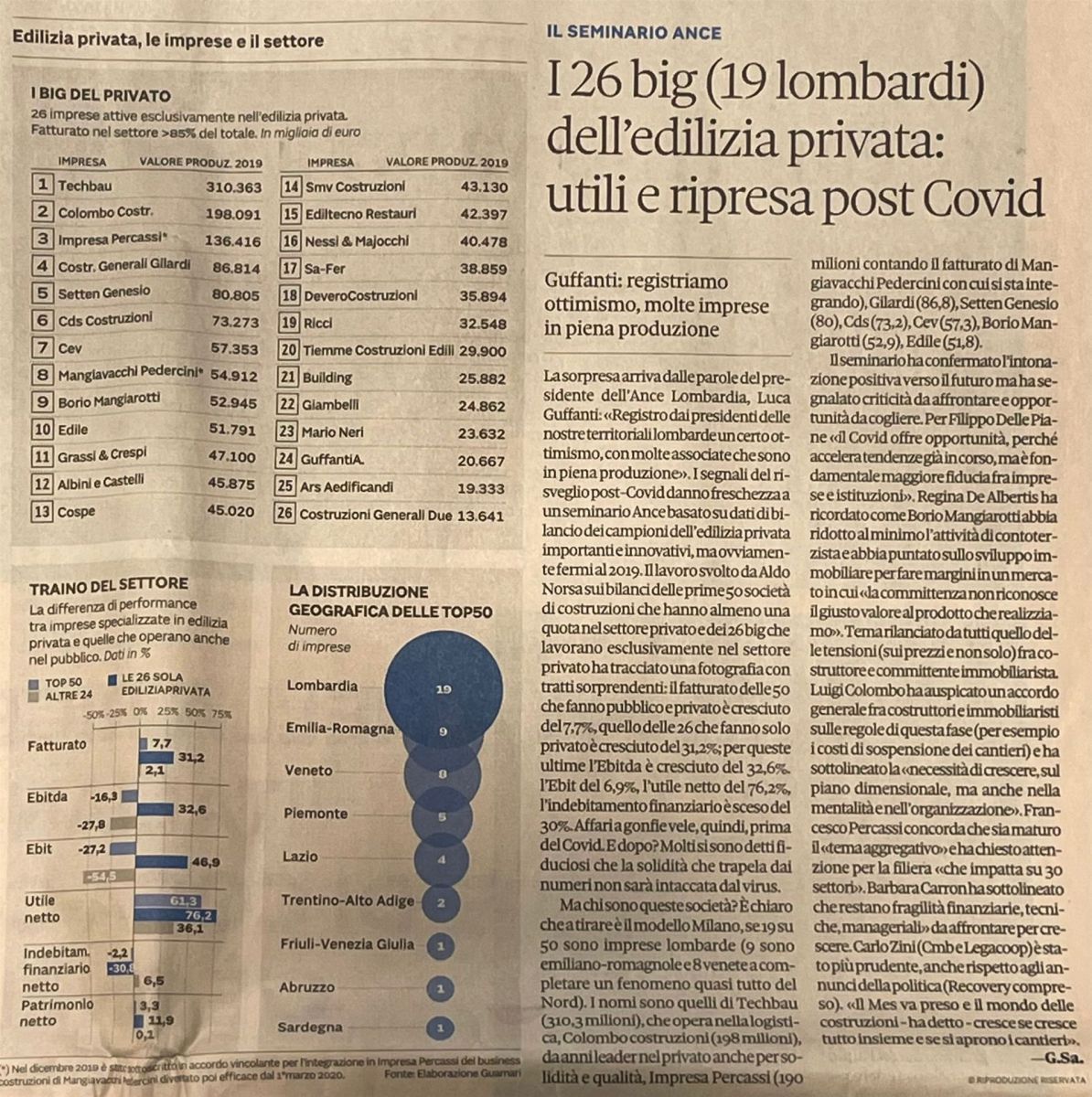The 26 “Giants” (19 from Lombardy) of private construction: profits and post-Covid recovery
Source: Sole 24 Ore
Guffanti: “We’re Seeing optimism, many companies are operating at full capacity”
The surprise came in the words of Luca Guffanti, President of Ance Lombardia:
“From our local chapter presidents across Lombardy, I’m hearing a certain degree of optimism—with many member companies currently running at full production.”
Post-Covid recovery signals brought a sense of renewed energy to an Ance seminar focused on the 2019 financial statements of key players in private-sector construction—data compiled before the pandemic hit.
The study, conducted by Aldo Norsa, analysed financial statements of the top 50 construction companies involved in both public and private sectors, as well as 26 companies operating exclusively in the private sector. The findings were striking:
- For the 50 mixed-sector companies, turnover rose by 7.7%.
- For the 26 private-sector-only companies, turnover surged by 31.2%.
- EBITDA for this group rose by 32.6%, EBIT by 6.9%, and net profit by a remarkable 76.2%.
- Financial debt dropped by 30%.
In short, business was booming before Covid—and now, many industry voices are confident that this solid foundation will weather the storm.
Who are these thriving companies? It’s clear that the “Milan model” is leading the way: 19 out of 50 are based in Lombardy, followed by 9 from Emilia-Romagna and 8 from Veneto, making this largely a Northern Italian phenomenon.
Some of the standout names include:
- Techbau (€310.3 million), focused on logistics
- Colombo Costruzioni (€198 million), a long-time leader in private sector work, known for its commitment to quality and solidarity
- Impresa Percassi (€190 million, including revenues from Mangiavacchi Pedercini)
- Gilardi (€86.8 million)
- Setten Genesio (€80 million)
- CDS (€73.2 million)
- CEV (€57.3 million)
- Borio Mangiarotti (€52.9 million)
- Edile (€51.8 million)
- Grassi & Crespi (€47.1 million)
- Albini e Castelli (€45.8 million)
- COSPE (€45 million)
While the seminar struck a hopeful tone about the future, it also highlighted challenges and opportunities that lie ahead.
Regina De Albertis pointed to Borio Mangiarotti’s decision to move away from subcontracting and focus instead on property development to increase margins—an approach echoed by many.
There was also wide agreement on the need to address ongoing tensions between construction firms and real estate developers, especially concerning pricing and project delays. Luigi Colombo called for a general framework agreement to guide relationships in this transitional phase (e.g., protocols for pausing worksites).
Francesco Percassi added that the time is ripe for industry consolidation, and urged greater attention to the broader supply chain, which affects 30 related sectors.
Barbara Carron emphasised the need to address financial fragility and managerial shortcomings in order to support growth.
Meanwhile, Carlo Zini (CMB and Legacoop) offered a more cautious view, particularly in response to political promises, including those tied to the Recovery Plan.
“We need to make use of the MES,” he said. “The construction sector will grow only if the entire economy grows, and if building sites are opened.”
—G.Sa.


